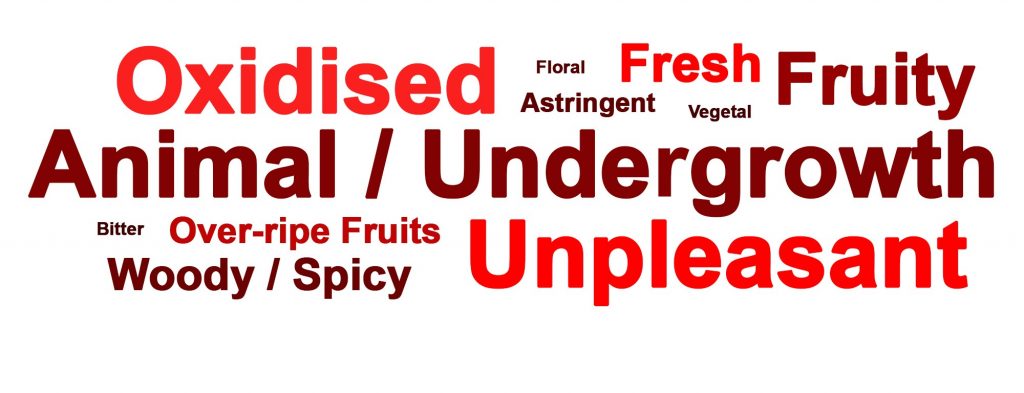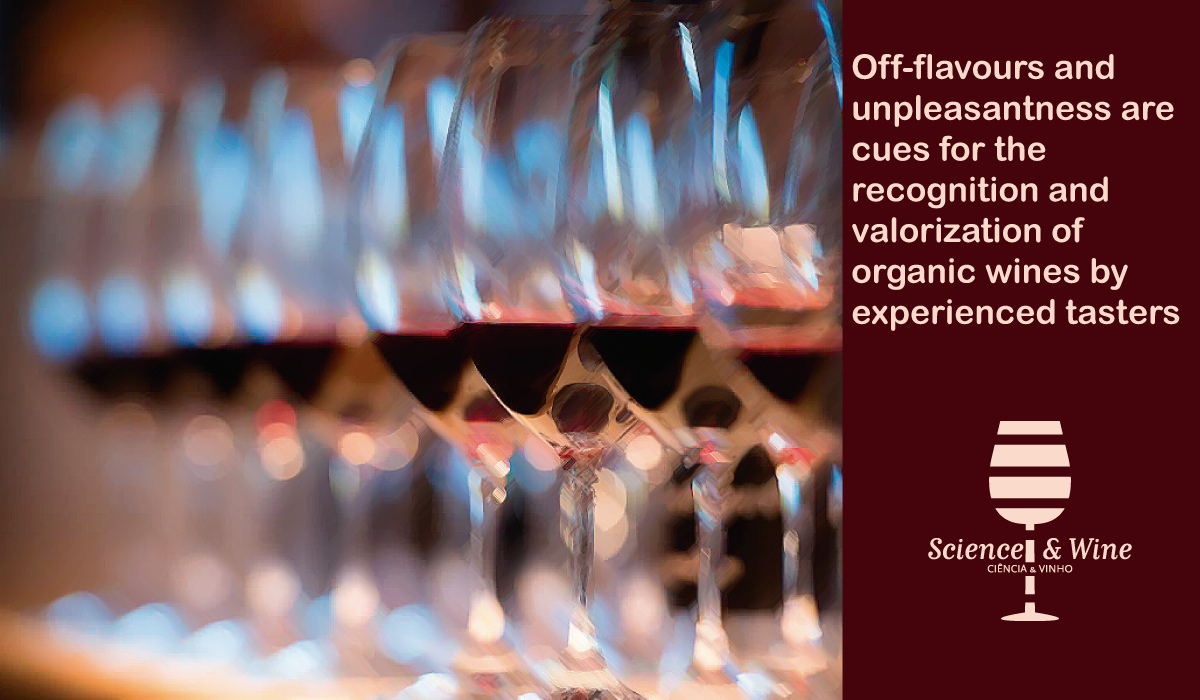By Manuel Malfeito Ferreira
The appreciation of wines produced according to the organic mode of production is increasingly steadily among consumers. Anecdotal evidences show that consumers tend to tolerate wine flaws when wines are known to be organic. However, there have been no reports on the evaluation of these wines by an expert cohort of tasters. What would be the behavior of these educated consumers when tasting clearly defective wines? To answer this question we devised an experiment with different labeling information given a priori.
The study used a tasting panel constituted by the students of the master’s degree in Viticulture and Oenology from ISA and the international Vinifera Euromaster program, all with experience in off-flavours’ recognition. The same wines were tasted in two sessions, one with information that the wines were conventional and the other where the wines were considered as organic. In addition to these two test sessions, an additional session was held where students were asked to guess the mode of production.

The results demonstrated how the information conditioned the evaluation, value and description of the wines. In the “organic” wine session the scores were higher and students were willing to pay more than in the “conventional” session. In the absence of information on the mode of production, the students used sensory descriptors related to wine off-flavours and an emotional response of unpleasantness as indicators of the presence of organic wines. That is, clean wines were considered conventional and tainted and unpleasant wines were considered to be organic.
The results demonstrated the so-called “halo effect” of psychological nature, where the evaluation of a wine was more dependent on preconceived ideas than on its sensory characteristics. This is in line with the latest discoveries in neuroscience where emotion is an integral part of the sense of smell.
Interestingly, the emotional response was used almost only in the guess session. In other words, when experienced tasters were informed about the nature of the wines they responded according to the expected sensory descriptors associated with those wines. For instance, animal/undergrowth was used more frequently when wines were supposed to be organic. In the absence of information, experienced tasters relied on emotional responses and on off-flavours as cues for their recognition.

The implications of these results are not only useful for marketing actions but also question the effectiveness of present wine higher education as envisaged by the pioneers of wine science, Profs. Émyle Peynaud of the University of Bordeaux and Maynard Amerine of California University in Davis, who devoted their lives to the prevention of off-flavours and the consequent improvement of aromatic purity.
Article Links
Open access through:
Abstract: https://www.mdpi.com/2304-8158/9/1/105
PDF Version: https://www.mdpi.com/2304-8158/9/1/105/pdf

Manuel Malfeito Ferreira is an Assistant Professor at the Instituto Superior de Agronomia (ISA), University of Lisbon, teaching classes related with Food and Wine Microbiology since 1987. His research is mainly related with food and wine spoilage yeasts especially concerning volatile phenol production by Brettanomyces bruxellensis. Another topic is the study of microbial ecology of the vineyard environment, aiming at understanding the dissemination of spoilage species by analysing the microbiota of damaged grapes. Recently, he begun a research line to understand wine appreciation under the consumer perspective.
His work is published regularly in peer-reviewed journals and is co-author of several book chapters, being frequently invited to speak in technical seminars all over the world. Since his first work in the production of sparkling wine by the continuous method, in 1986, he is winemaker for several Portuguese wineries and organizes cultural events to promote wine education among consumers.

